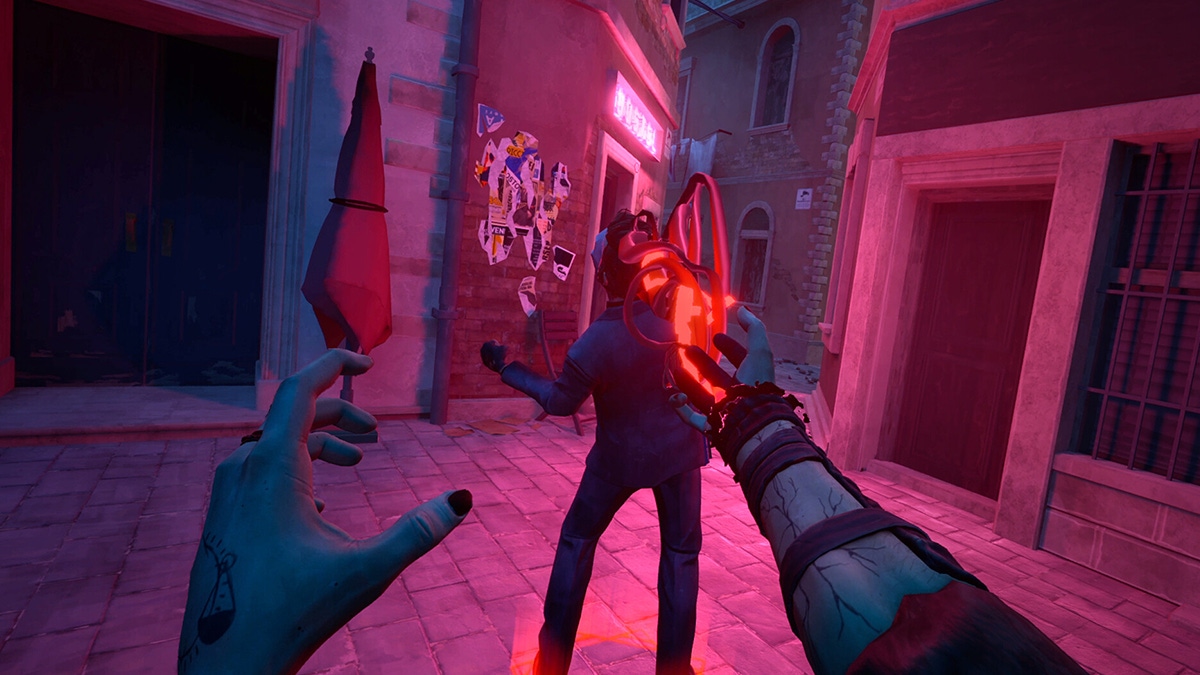Trending
Opinion: How will Project 2025 impact game developers?
The Heritage Foundation's manifesto for the possible next administration could do great harm to many, including large portions of the game development community.
Vampire: The Masquerade - Justice drove the studio to success after hitting the ground running on Meta Quest and PlayStation VR2.

Swedish VR studio Fast Travel Games delivered record-breaking holiday sales driven by the success of Vampire: The Masquerade - Justice on Meta Quest and PlayStation VR2.
The studio's roster of virtual reality titles collectively delivered over 100,000 sales across November and December 2023, while The Masquerade - Justice has become its fastest-selling internally developed project since debuting in November. Fast Travel's publishing arm, which launched in 2021, also contributed to that success.
In an exclusive interview with Game Developer, Fast Travel CEO Oskar Burman says the studio's recent success was indicative of the bubbling, long-term potential of VR, but believes the market still needs to "define itself."
Analyzing the studio's recent success, Burman claims several factors—including appealing Black Friday deals on the Meta Quest 2, the launch of the Quest 3, and the arrival of PSVR2—enabled Fast Travel to capitalize on a "bigger addressable market" for VR.
"Vampire was also our biggest production yet and one of our largest marketing commitments to date. We took the game to Gamescom and featured in a partner showcase with Meta. That, combined with a strong critical reception to the game at launch really helped push sales," he adds.
"But it's also important to point to the growing pool of published titles we've amassed over the years, and how they can continue to perform as more people get into VR. A great example of this is Project Demigod, our latest publishing effort that's been on App Lab for Quest since early 2022. Despite launching nearly two years ago, the bulk of its sales—over 100,000 on App Lab alone—happened in 2023."
"Now we're moving it to the main Quest Store and Steam, where increased visibility will help sales further still. Titles with long shelf lives like this are really important to VR's success."
All signs suggest Fast Travel has established firm footing within an industry that's currently extremely volatile. Acknowledging the wave of layoffs that came to define 2023 and swiftly bled into 2024, Burman explains Fast Travel will be "pragmatic" when attempting to use its recent success as a springboard for growth.
"We're a team of just under 70 now, consisting of marketing, publishing and often two teams working on separate internal projects. That headcount absolutely feels right for the scope of Vampire and our projects to come," he says.
"I'm not saying we won't be hiring any more roles, but we aren't going to suddenly grow to an unnecessary size that piles unrealistic pressure onto the next few years. We have to keep making games good enough to keep encouraging audiences to get into VR, and that's a step-by-step process. It's only when we see larger growth on that side that we can really consider how much bigger our studio can be."
Adopting pragmatic growth plans makes sense given the state of the wider game industry, but Burman says the VR market is also somewhat unsettled. Major players like Meta that continue to bundle virtual or mixed reality experiences and hardware into a broader "metaverse" push, and that can result in volatility.
"I think we're currently seeing an industry trying to define itself. The Quest 2 was a big success and a game changer for both our studio and the industry at large, but the question quickly became about taking the device beyond just a video game console. We saw the industry make a metaverse push that audiences weren’t quite ready for, and devices aren't yet comfortable and robust enough for all-day work, so in a sense it felt like trying to run before we could walk," he continues.
"Now we have MR/Spatial Computing coming in with a whole different set of questions, and we're pretty excited to see where Apple leads the market at large. We're definitely interested in MR and how it can grow the market, but we ultimately still see ourselves mostly as a VR games developer and publisher and believe in the expansion of that market."
Fast Travel has plans to experiment with "offshoots" into the mixed reality space, but Burman reiterated that VR will remain the studio's "bread and butter" for the foreseeable future. Right now, he wants to see VR studios push to release bigger, better video games that are capable of drawing in larger audiences.
"Lots of veteran VR studios are really stepping their game up in this regard and we are too," he says. "I hope that, by this time next year, we’re reflecting on a wave of high caliber VR titles that really put the tech on the map for core gamers yet to buy a headset."
Read more about:
Top StoriesYou May Also Like